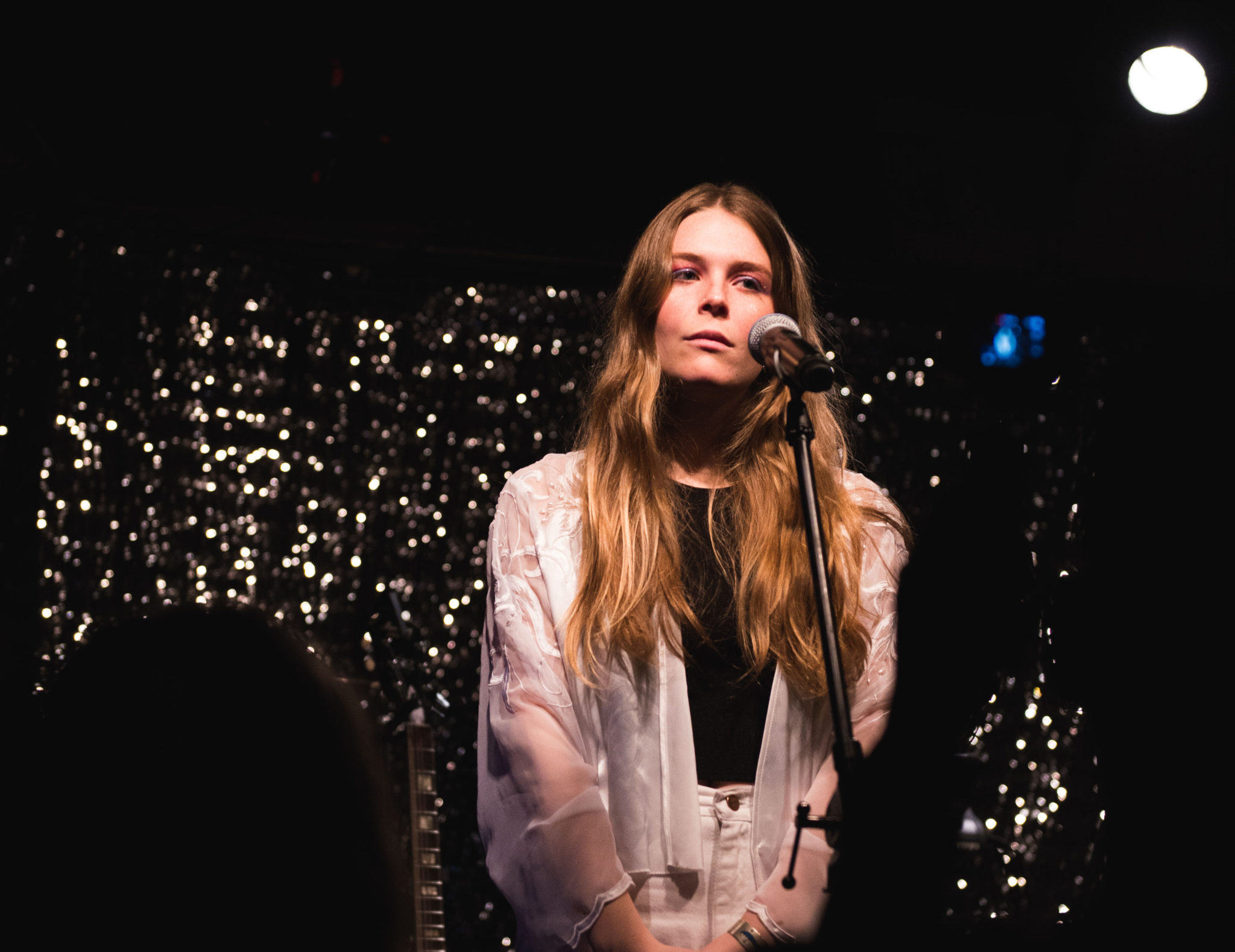Instead of a traditional top-10 list for the end of the year, Split Tooth Media is releasing a series of essays about the music that we felt mattered most in 2018. Read why here.
In the summer of 2011, a brief 10 days felt like a lifetime. I was in Philo, California, with two of my best friends, working and staying at my uncle’s ranch house deep in wine country, secluded from most of the world. Two of us were going through break-ups of long-term relationships. We were looking for an escape from another mundane summer in southeast Portland and the troubles of our teenage lives. We had a routine: we got the same sandwiches for lunch every day at the only deli in town, we worked in the 100-plus-degree heat scraping off old paint, we caught lizards and toads and let them go again.
And plucking his Hawaiian chill-out music through it all was Jack Johnson. Our obsession with his digestible, waiting-room surf tunes was inexplicable — we had vastly different tastes in music otherwise, and the singer-songwriter didn’t much fit in with any of them. Despite it all, we looped his albums nonstop while we worked and played, over and over.
After a bad day at work or a tough conversation, the acoustic strumming of “Better Together” came to mind for years, taking me back to those hot days in Philo. But as time passed, those memories faded and I began to look for a breath of fresh air. This year, in the throes of another hot summer, I found it — this time right at home, behind the grill at a food cart and in Portland backyards. At the crux of a season of folk and pop, Maggie Rogers hit just the right note.
I turned to “Fallingwater,” her first summer single, on a breezy July day. The track looped through my buds for hours that afternoon — so methodical in its development and satisfying in its conclusion that every time the thought emerged to change the song, I let it run one more time.
The track might be my favorite of hers yet, partly because it’s emblematic of all the things she does well. Rogers has lassoed a synth-driven ’80s revival (embodied by catchy tracks from artists like Vulfpeck and Steve Lacy) and wrangled it into something more complex, something that it didn’t know it was capable of. She harnessed the energy of thumping bass and wrapped it in foliage — a dressing of light vocals and piano garnish. It’s unobtrusive dance music, a call to action that relaxes the listener. It’s oxymoronic and at the same time feels so right.
The emerging singer-songwriter from rural Maryland became a regular rotation for me over the summer. Her hit “Alaska” has cemented itself in the background of most minds. But before that, she was a banjo player and more traditional folk singer. Summer 2018 was speckled with singles and music videos leading up to a Saturday Night Live performance in November. Her first full-length major-label release, Heard It In A Past Life, is due in January 2019.
Rogers first came to prominence virally, after a video of her NYU masterclass racked up more than 3 million views. In it, she presents “Alaska” to a visiting Pharrell Williams, whose response after the song is “Wow. Wow. I have zero, zero, zero notes for that.”
Her EP, Now that the Light is Fading, came the following year. It is by no means forgettable but didn’t find much mainstream traction beyond headliner “Alaska.” But “Dog Years” is a noteworthy early case study of her blossoming style. Again, it strikes notes on the synth and in her vocals that are more Sylvan Esso than classic singer-songwriter. But a fusion of that electronic style and what sound like literal bird noises makes the track feel more apt for a walk in the woods than a night in the club.
Pharell hits on this duality in his extended notes in the masterclass, saying “Your whole story, I can hear it in the music … I’ve never heard anything that sounds like that.” He compared her synthesis of genre, in a surprisingly apt metaphor, to the creation of the Reese’s peanut butter cup.
Rogers also mentions in the video that she’s a synesthete — meaning she closely associates colors and sounds. This is reflected in the extravagance of her video work.
“I’ve always been a very visual creator. I make mood boards or sit with colored pencils and scribble and try and figure out what I’m trying to work through musically,” she told New Musical Express in early 2017.
“On + Off” might be the most cut and dry example of how that manifests itself. The camera traces her and her gang in bright outfits before a white canvas. The movement, separation and intensity of the color choices provides another layer to her songwriting. The video for “Fallingwater,” too, sets Rogers in a neutral zone and a stark color. Her fluid movement under a flowing red gown embodies the feeling of the music and the imagery becomes inseparable from the song itself. Her ability to create that association for listeners is a testament to her artistic empathy and provides an unusual look through the artist’s kaleidoscope.
This open-arms approach, beckoning an audience to be a part of her growth, is a through-line in much of her public persona. Rogers is a regular presence on social media, posting clips from shows and retweeting and replying to messages from her followers. There’s an unusual accessibility to these interactions. Rogers’ informal approach to her newfound fame strikes as if she’s unaware of it, or at least unchanged by it. She feels like a person you could talk to, almost like the musical echo of 29-year-old bartender-turned-congresswoman Alexandria Ocasio-Cortez.
THIS GIRL JUST PLAYED MADISON SQUARE GARDEN TWICE pic.twitter.com/y2OQJxqfPC
— Maggie Rogers (@maggierogers) December 12, 2018
Rogers has dipped her toes in the stream of politics too. It’s subtle, compared to much of the rhetoric tossed around right now on both sides, but clearly part of who she is. “Give a Little,” which was included on the Amazon Music Best of the Year list, was an August release she said she wrote on the day of the national school walk-out for gun control. As Nov. 6 approached, she was vocal in encouraging her followers to use their voices (including an election day tweet containing the word “VOTE” 42 times).
These are small things, hardly unusual even for a not-famous person her age, but still promising in the sense that artistry and the events of the world are tightly intertwined now more than ever, and acknowledging that is particularly important for someone in the realm of folk, looking at the activist history of the genre.
It remains to be seen how Rogers handles fame in the long run. Maybe the little quirks of her public presence disappear and she walls herself off with social media managers and bizarre rider demands, or maybe she remains the humble banjo player we see on stage at Berklee in 2011.
Her time on Saturday Night Live in November hinted at how that might play out. Nerves seemed to get the best of Rogers in her first song (“Light On,” the last of her summer releases). SNL isn’t known for getting the best out of artists, but the lights looked a little too bright for Rogers in those early verses.
But her second performance — of “Fallingwater” — was a reckoning. It was a dominant performance on one of the most daunting stages in entertainment, but it was also unequivocally personal. It was a statement, and a strong one. She felt it too.
something happened during this performance. a shift. i felt it move through me. i’ll remember this for the rest of my life.
— Maggie Rogers (@maggierogers) November 6, 2018
‘fallingwater’ for @nbcsnl https://t.co/jeNxepZqJ6 pic.twitter.com/o2dGWvxI0j
It was an indication that maybe she can retain who she is — the person who slips out in a shocked-looking smile as the music dies, whose dance moves look like the ones you and your friends might pull out at a house party — and find a way to reconcile her sense of self with the biggest stages in music.
That precise conflict was the tenor of “Light On,” currently in the Billboard Triple A Top 10 (at No. 2 — right under Mumford & Sons, whom she just toured with). In the song and ensuing video, Rogers explores what a meteoric rise to fame has done to her and her relationships. “it’s about how overwhelmed + scared i was during all that change, but mostly about all the light you gave me when I couldn’t always find it for myself,” she wrote to followers on Twitter prior to the track’s release.
It’s fitting that Rogers has left her impending album hanging on that note: it’s hard to say where this is all taking her and how it will change her. So many artists of similar tone today come up for a few tracks or an album and then disappear just as quickly. It’s a revolving-door age.
In an early interview (that Rogers herself may have forgotten by now) following the release of her second straight-folk album in 2014, Rogers said that she was not satisfied with what she had made, that it was not her best work. The writer was apparently surprised by this because then she said “when my music is truly at its best I will fight for it, but I’m not there yet.”
Her honesty is refreshing. As popular as the story of the come-out-of-nowhere, polished and perfect artist is, it’s hardly reality. So much of art is about more than talent — it’s about the way it grows and changes in the relentless drive toward the fruition of long-held dreams, anxious nights at SNL and sold-out venues.
In 2017, Rogers said that her old folk tunes were colored mostly like a sunrise, and the music she had just begun to make is “starting to feel like sunset.” It’s unclear where exactly Heard It In a Past Life will fit into her day’s light, but, as she puts it, “I’m doing this in my way and in my time, and I’m ready.”
Maybe it’s that I caught Rogers during this ascent that makes her so captivating, maybe she just struck the right mood at the right time, like Jack Johnson did that summer in high school. But I’m pretty sure it’s more than that. I’m pretty sure it’s a young artist who’s been good for a long time and is rapidly figuring out how best to use that power, and is ascending not because of Pharrell Williams or any other stroke of chance, but because she was determined to. The chance to watch that story unfold for Rogers is a gratifying and unusual experience, a glimpse into her artistry that isn’t so much a view through a window but a hand-in-hand walk through a forest she envisioned herself.
Follow Cooper and Split Tooth Media on Twitter.
(Split Tooth may earn a commission from purchases made through affiliate links on our site.)




